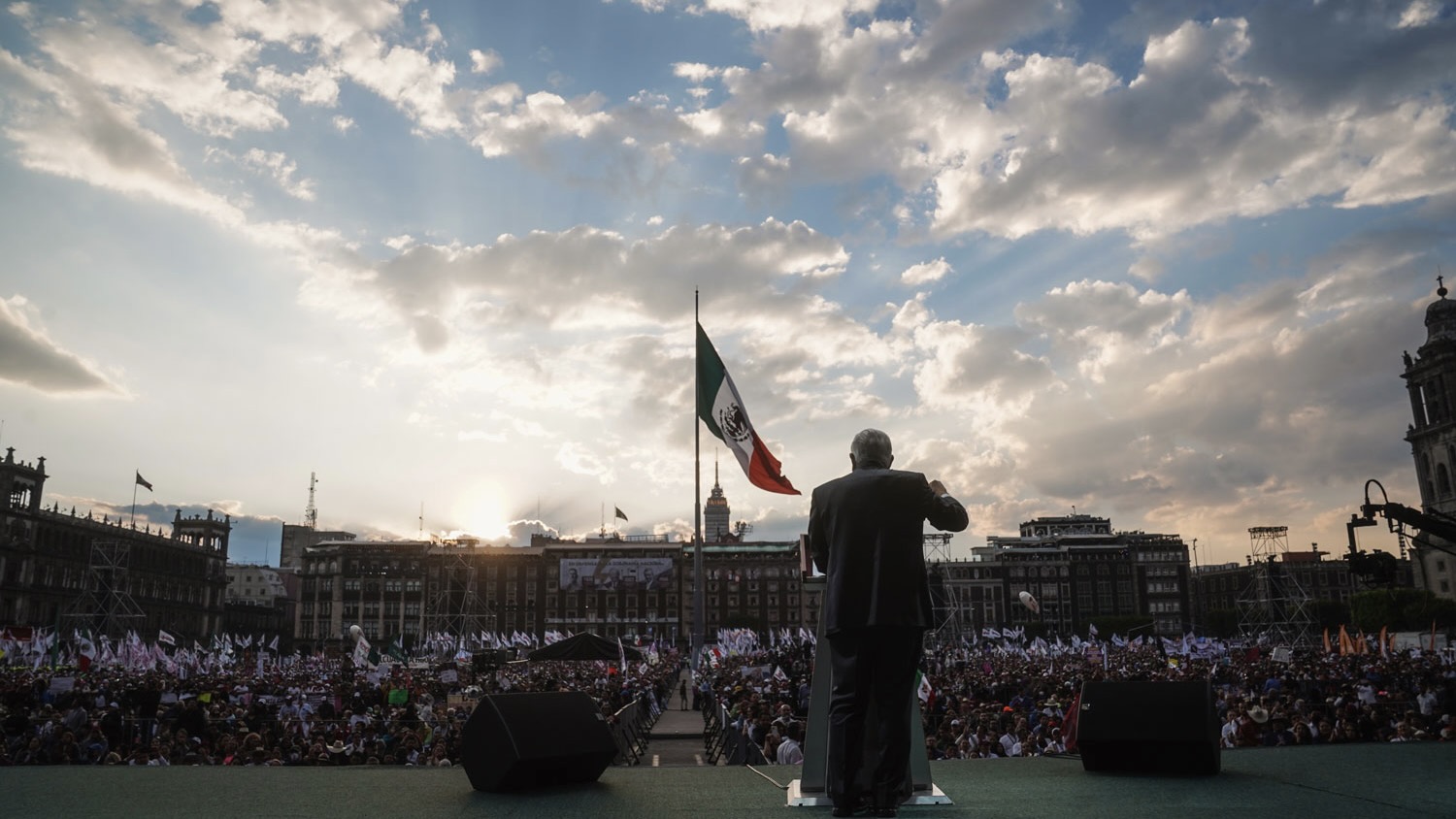Mexico’s President Andrés Manuel López Obrador (AMLO), on Monday, May 15, once again refused to hand over the pro tempore presidency of the Pacific Alliance to Peru’s de facto president of Peru, Dina Boluarte. President AMLO said that there was a consensus between Mexico, Colombia and Chile not to give the presidency of the alliance to Peru.
“There are four countries [in the bloc]: Colombia, Chile, Mexico and Peru. And the opinion of the president of Colombia is similar to mine and the president of Chile. He is [also] not interested in giving Peru the presidency of this group called the Pacific Alliance… We can hand it over to Chile, to Colombia and let them decide what they [want to] do, but this lady, with all due respect, [is] a usurper, [who] expelled our ambassador from Peru,” said AMLO in response to a journalist’s question during his daily morning press conference.
President AMLO reiterated that the former Peruvian President Pedro Castillo was unjustly imprisoned because he came from a humble background and he did not allow the conservative forces to plunder his country as they are doing today. In this regard, he suggested that Boluarte leave the presidency to Castillo, who obtained a legitimate victory in free elections.
“I suggest that she resign from the presidency because she is usurping that position and that she gets Pedro Castillo out of jail, a humble person, a teacher from the mountains of Peru and unfortunately in that country as in others racism and classism prevail,” said AMLO.
AMLO once again insisted that he cannot hand over the presidency of the Pacific Alliance to Boluarte because “for us, she is not legally and legitimately the president of Peru.”
Last month, on April 25, the Boluarte government requested the AMLO administration for the transfer of the pro tempore presidency of the trade bloc for the second time since December 2022. Through an official communique, sent to the foreign ministries of Mexico, Colombia and Chile, the Boluarte government demanded respect for Peru’s right to assume the rotating presidency of the bloc “without further delay” and said that “Mexico’s refusal breaches international obligations that affect the prestige of the alliance.”
Boluarte took office on December 7, 2022, after Castillo was removed by the right-wing dominated Congress in a legislative coup, and was subsequently arrested for having tried to dissolve the Congress by decree.
Following Castillo’s forcible removal and illegal arrest, hundreds of thousands of people, mainly from the long-neglected and marginalized countryside of Peru who identify themselves with Castillo, mobilized in different parts of the country. The protesters condemned Boluarte for betraying the progressive ticket she was elected on after she entered into a political alliance with the country’s right-wing forces. They demanded Castillo’s immediate release, Boluarte’s resignation, new elections, and a new constitution.
The Boluarte government unleashed brutal police and military repression against those who took to the streets against her government. According to reports from local media and human rights organizations, around 70 people have been killed in the protests, most of them in violent repression by state security forces.
On May 3, the Inter-American Commission on Human Rights (IACHR) confirmed its report that 57 people died in these protests, and said that the state’s response to demonstrators was characterized by the “disproportionate, indiscriminate and lethal use of force.” It added that in some cases, the actions could be classified as “extrajudicial executions” and “massacres.”
Various Latin American political leaders have criticized the Boluarte government for violating Castillo’s political rights as well as the human rights of thousands of Peruvians who demanded her resignation. Mexico President AMLO, Colombian President Gustavo Petro, Chilean President Gabriel Boric, Honduran President Xiomara Castro, and Bolivian President Luis Arce are among those who have explicitly expressed support for Castillo and repeatedly called on Peruvian authorities to respect human rights and not to repress the people.
In the past months, the Boluarte government also announced the definitive withdrawal of the Peruvian ambassadors to Honduras, Mexico and Colombia. Peru has been maintaining bilateral relations with the countries through the chargé d’affaires. Additionally, in January and February, the Peruvian Congress also declared former Bolivian President Evo Morales and Colombian President Petro, respectively, a ‘persona non grata’ and prohibited them from entering Peru, due to their comments rejecting the coup against Castillo.
According to a recent survey conducted by the IPSOS Peru, 75% of the Peruvian citizens disapprove of the Boluarte administration, 79% reject the performance of the Congress, 68% are dissatisfied with the Judiciary, and 57% are displeased with the work of the Prosecutor’s Office.





